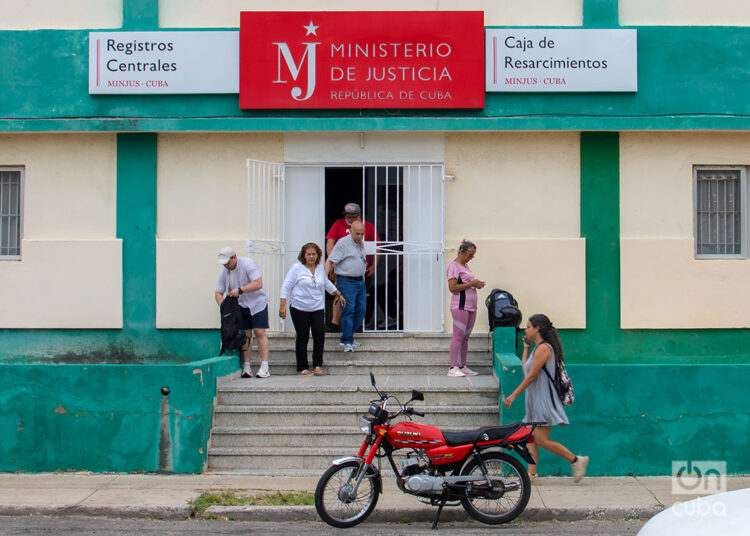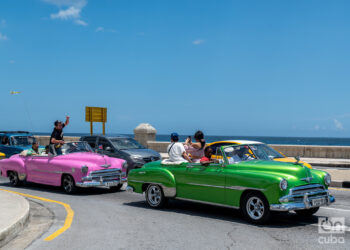The Cuban parliament addressed the future Laws on Immigration, Citizenship and Aliens, three regulations that are generating doubts and controversy due to their possible repercussions in the midst of the largest exodus the island has suffered in decades.
The National Assembly of People’s Power (ANPP) approved with hardly any modifications the bills for these three laws that go hand in hand and that have been presented publicly in recent weeks.
These are, according to experts, the main changes that these three regulations incorporate, as well as the biggest questions they generate for Cubans living both inside and outside the country.
The reforms are key for hundreds of thousands of Cubans; many have left the island in recent years and others have plans to migrate.
Effective residence
Residence in Cuba can no longer be maintained by entering at least briefly every 24 months or requesting extensions from abroad. However, with some exceptions, it will be necessary to live in the country for more than half of the year.
The doubts that arose regarding the repercussions that this change could have on property rights seem to be resolved with the announcement of the inclusion of an article that would guarantee that Cubans abroad could own a house or a car on the island.
The uncertainty came from the current General Law on Housing, which ensures that Cubans who spend 24 consecutive months outside the country lose their property rights. The new regulation also contemplates that non-resident Cubans can inherit properties on the island if they comply with procedures and requirements.
Withdrawal of citizenship
The Citizenship bill empowers the president of Cuba to strip citizenship by decree from those who enlist “in any type of armed organization with the objective of attacking” Cuba or its citizens and from those who carry out “acts contrary to high political, economic and social interests” of the country.
The affected person must reside outside the country or have another nationality for their citizenship to be withdrawn, although exceptions are considered for “serious” reasons.
Several NGOs and human rights defenders have warned about the potential political use of denationalization in Cuba, pointing to Nicaragua as a recent example.
Last November, the Council of Ministers approved a terrorist list that includes 61 people, including activists, exile leaders and “influencers,” as well as 19 organizations, mostly based in the United States.
“No one loses a property” with the new migration law, says MININT
Residence for the rich and investors
The Immigration bill gives the possibility for people with “significant assets” to apply for permanent residence, as well as those who want to “make investments” in Cuba, for whom a new immigration category is created. Until now, foreigners could only obtain it through marriage or by recognizing children.
At various points in these regulations, economic reasons are referred to. That of Immigration, for example, assures in its introduction that it seeks to offer “immigration solutions” in the context of the “new economic model.”
Entry into and exit from the country
The Immigration bill allows authorities to prohibit entry into Cuba to people related to “hostile actions against the political, economic and social foundations of the Cuban State” or for “reasons of defense and national security.”
Any person can also be prohibited from leaving for “reasons of defense and national security,” for “lacking the established authorization” for being considered a “qualified workforce” for the country, to “guarantee the security and protection of official information” and, even, for “public interest.”
Doctors, soldiers and journalists, among other professionals, have historically had their departure from Cuba limited. Some opponents and activists have also been “regulated.” Likewise, several Cuban activists, intellectuals and academics have denounced in recent years that, without explanation, they have been denied entry back into the country after leaving for another country.
EFE/OnCuba










